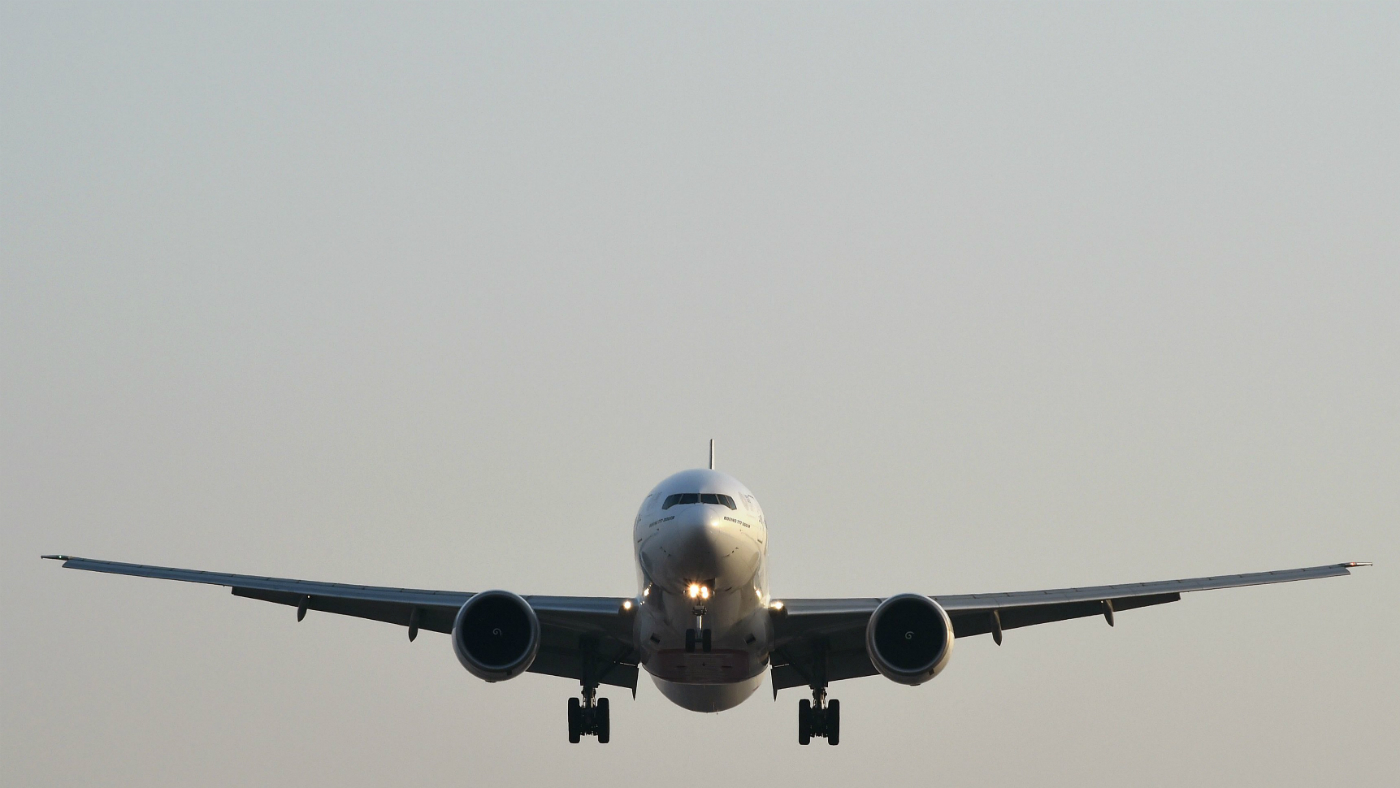How dangerous is plane turbulence?
One passenger dies on Singapore Airlines flight from Heathrow forced to divert to Bangkok after 'severe' incident

A free daily email with the biggest news stories of the day – and the best features from TheWeek.com
You are now subscribed
Your newsletter sign-up was successful
A passenger died and dozens more were injured after a plane flying from London to Singapore encountered severe turbulence.
Singapore Airlines flight SQ321 took off from Heathrow on Monday night bound for Changi Airport, but instead made an emergency landing at Bangkok's Suvarnabhumi Airport at 3.45pm on Tuesday (9.45am BST).
In a statement shared on social media, the airline confirmed that the Boeing 777, which was carrying 211 passengers and 18 crew, had "encountered severe turbulence", resulting in "one fatality".
The Week
Escape your echo chamber. Get the facts behind the news, plus analysis from multiple perspectives.

Sign up for The Week's Free Newsletters
From our morning news briefing to a weekly Good News Newsletter, get the best of The Week delivered directly to your inbox.
From our morning news briefing to a weekly Good News Newsletter, get the best of The Week delivered directly to your inbox.
The statement also offered "deepest condolences to the family of the deceased" and said that the airline is "working with the local authorities in Thailand to provide the necessary medical assistance" to injured passengers.
Images from Suvarnabhumi Airport "showed ambulances lined up on the tarmac", the i news site reported.
Photos shared from inside the aircraft appear to show food and cutlery "scattered across the aisles" in the aftermath of the incident. Flight tracking data indicated that the aircraft dropped from 37,000ft to around 31,000ft in three minutes.
The flight was around 90 minutes from its scheduled destination as it "finished traversing the Andaman Sea and neared Thailand", said Mail Online. The area had been "battered by extreme tropical thunderstorms".
A free daily email with the biggest news stories of the day – and the best features from TheWeek.com
In June 2023, five crew members were injured when severe turbulence struck a British Airways 777 flying from Changi to Heathrow as it passed over the Bay of Bengal, which borders the Andaman Sea.
What is turbulence?
Smooth air that turns choppy – similar to waves in the sea – can make a plane rise, fall and sway.
Physicists describe this as "turbulent flow", which occurs when the air moves in an irregular mixing pattern, causing changes in pressure and direction.
These counter-currents can be thermal, when warm air rises to meet cooler air; mechanical, when a mountain or manmade structure inhibits air flow; and shear, which occurs between two pockets of air moving in opposite directions.
Weather reports help pilots predict when and where turbulence is going to occur. Turbulence, which can reach heights of 50,000ft, is often spotted on radar, and then the plane is brought down to "turbulence penetration speed", which can prevent damage to the aircraft's structure.
Is it dangerous?
Turbulence is normal, and happens on almost every flight – although disruption serious enough to cause injuries is rare and fatal incidents almost unheard of.
The US Federal Aviation Administration (FAA) reported that 17 passengers and crew members were seriously injured due to turbulence on US commercial airlines in 2022. The annual number of injuries varies: 2009’s total was 101, while 2013 saw just six.
"Turbulence is the leading cause of non-fatal aviation accidents each year," said the FAA, but most reported injuries are due to people not wearing seatbelts.
"A plane cannot be flipped upside-down, thrown into a tailspin, or otherwise flung from the sky by even the mightiest gust or air pocket," said pilot Patrick Smith on his website, AskThePilot.com. "Conditions might be annoying and uncomfortable, but the plane is not going to crash."
That's because aircraft are subjected to "extreme" tests before they can go into service, said BBC Future. "Many modern passenger jets can flex their wings nearly 90 degrees in a test rig," which simulates conditions up to 1.5 times more challenging than those ever encountered.
Is turbulence becoming more common?
Scientists have warned that turbulence is becoming more common because of climate change.
Specifically, carbon dioxide emissions lead to warmer air and stronger jet streams. This "exacerbates clear-air turbulence, a particularly hazardous type because it is invisible and hard to predict", said Forbes. The evidence suggests the trend will continue and airlines will need "significant investment in turbulence avoidance over the coming decades".
Is there a way to avoid turbulence?
Sharing real-time data is an effective way to make flights smoother, said The Wall Street Journal. Many airlines already make use of software that "crowdsources turbulence reports from pilots’ iPads" as they fly.
But although turbulence detection and avoidance technology has "vastly improved", these comparatively microscopic rough patches in the skies remain "tough to predict".
"You’re talking about a little pin drop in the atmosphere," Bill Duncan, head of aviation forecasting operations at the Weather Company, told the paper.
Revised routing or increasing or decreasing altitude can also be simple solutions. But the surest way to avoid potential injury is simple: keep your seatbelt on at all times.